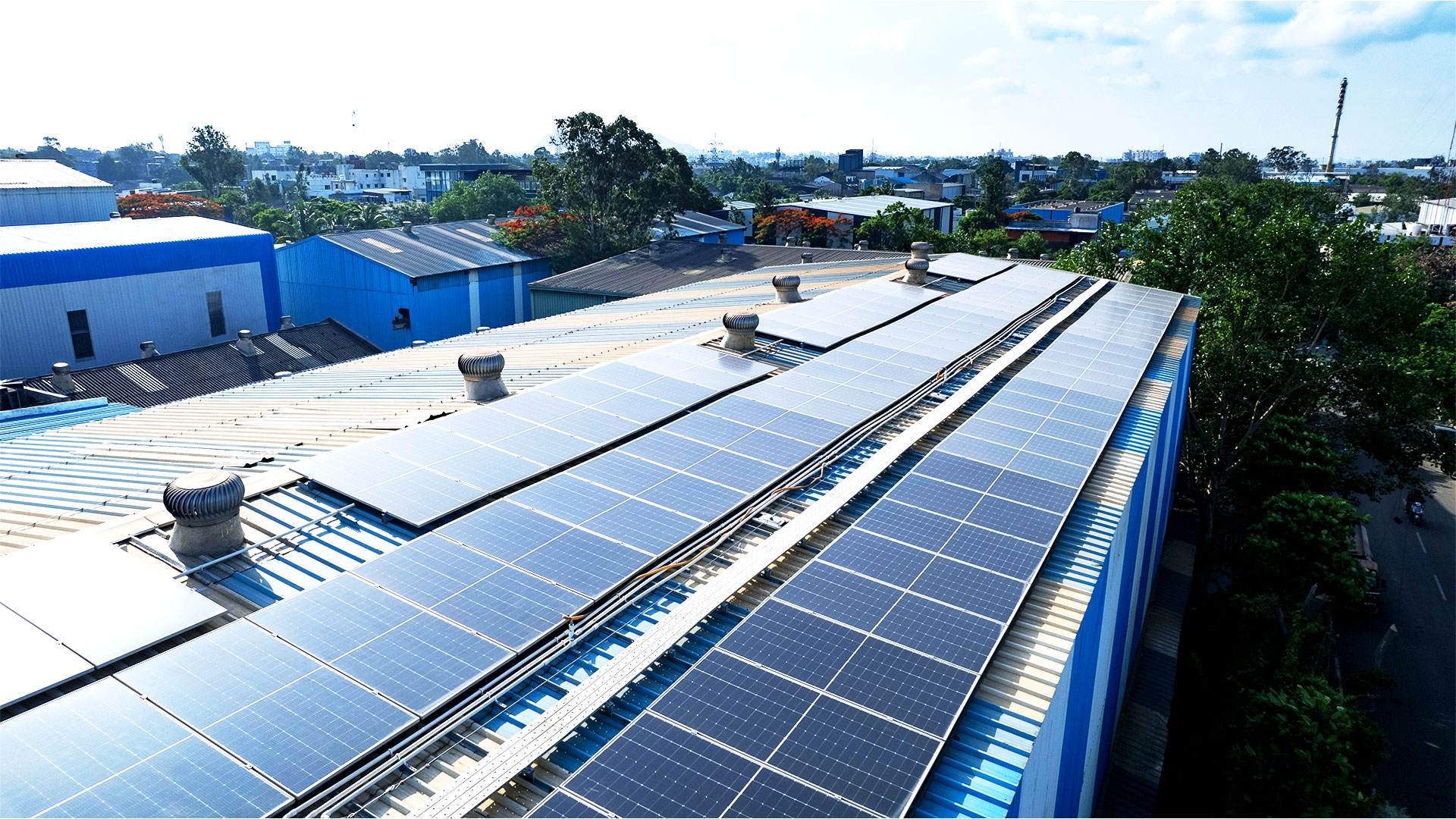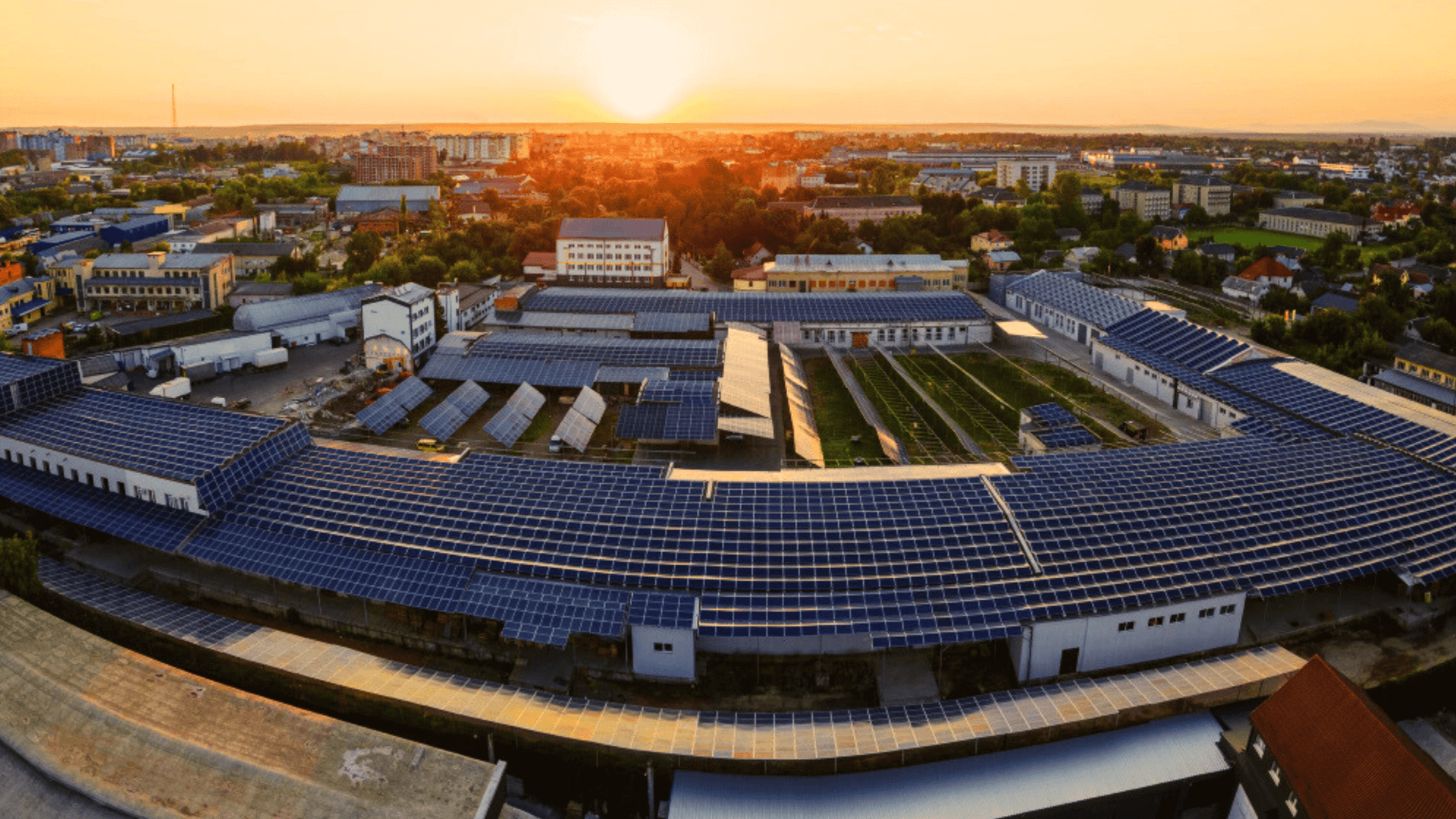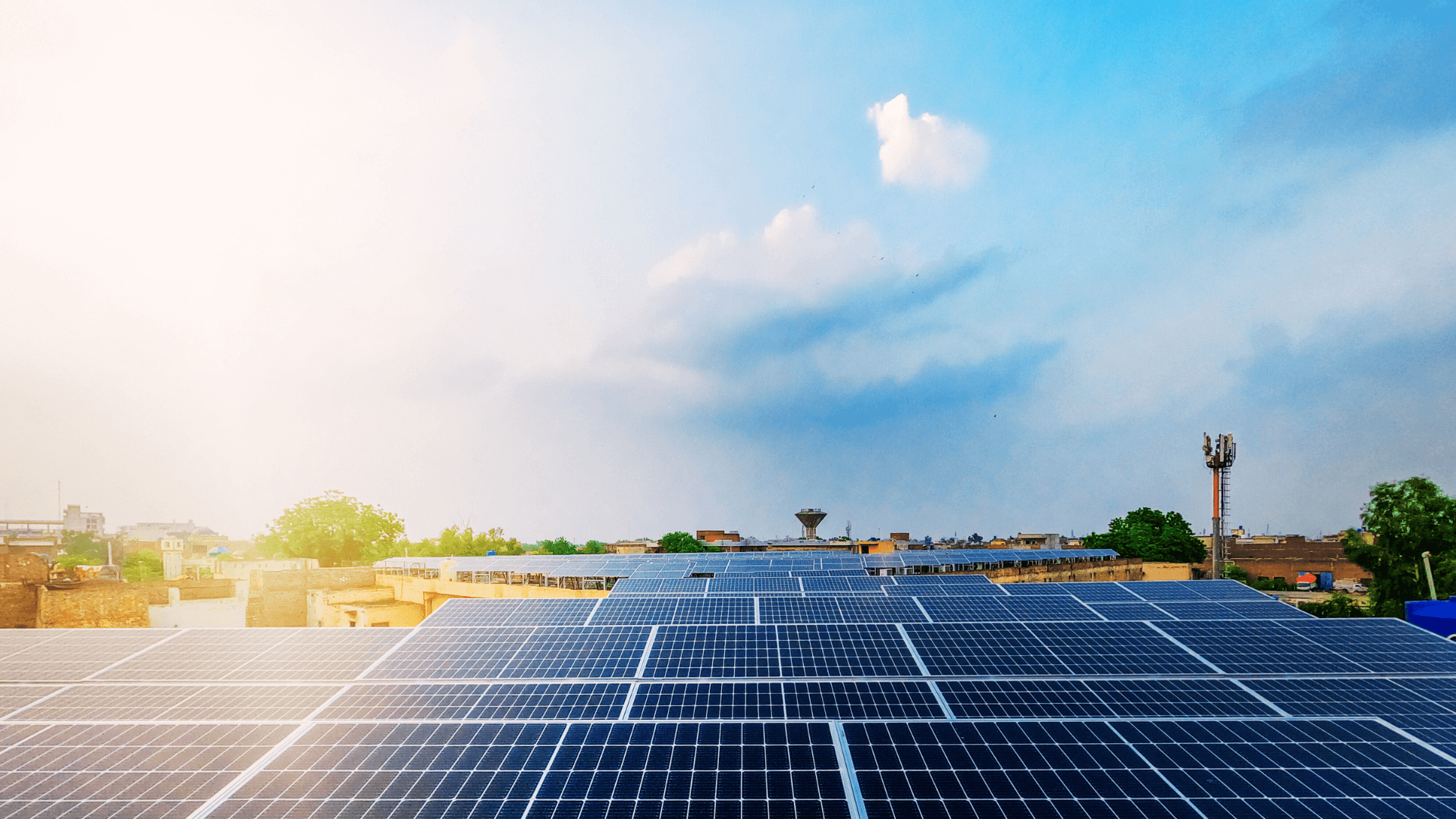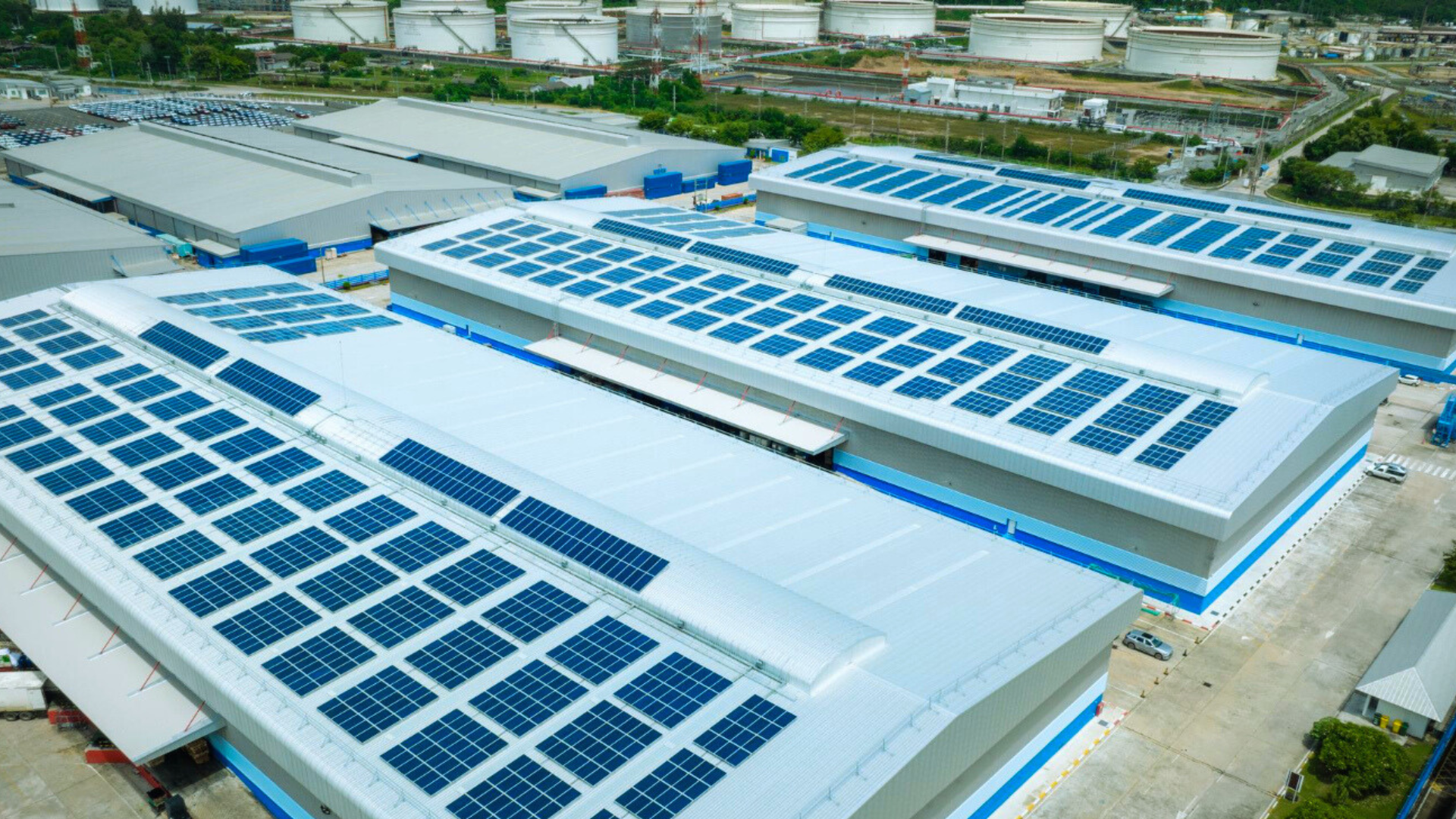India is experiencing a transformative shift towards renewable energy, with rooftop solar installations emerging as a pivotal component of this change. The Indian government’s ambitious target of achieving 500 GW of renewable energy capacity by 2030 underscores the nation’s commitment to sustainable energy solutions.
Rooftop solar panel systems harness sunlight and offer a decentralised and eco-friendly alternative to traditional power sources. This article explores how India is tackling these challenges, the real-world impact of solar adoption, and how financing options are facilitating the transition to solar energy.
Challenges in Rooftop Solar Adoption
While rooftop solar energy presents a promising solution to India’s growing energy demands, its widespread adoption faces several challenges.
High Initial Investment and Financing Constraints
One of the primary barriers to rooftop solar adoption is the substantial upfront cost. Despite government subsidies and policies like the PMSGY, the financial burden remains significant for many households and businesses. Accessing affordable financing options can be an easy way for potential adopters.
Awareness and Knowledge Gaps
A lack of awareness about the benefits and processes of installing rooftop solar systems hampers adoption. Many consumers are unaware of available subsidies, financing options, and the long-term savings associated with solar energy. This knowledge gap leads to misconceptions and reluctance to invest in solar technologies.
Structural and Technical Limitations
Not all buildings are suitable for rooftop solar installations. Factors such as roof orientation, shade, and structural integrity can affect the feasibility of installing solar panels. In urban areas, high-rise buildings and densely packed structures further complicate the installation process.
Regulatory and Bureaucratic Hurdles
Navigating the regulatory landscape for rooftop solar installations can be cumbersome, as with all bureaucratic processes. Obtaining necessary approvals, dealing with grid connectivity, and understanding net metering policies require time and expertise, which many consumers lack.
Real-World Impact of Solar Adoption
India’s rooftop solar adoption is delivering tangible benefits across households, businesses, and communities. From Delhi to Gujarat, the rollout of rooftop solar systems has led to remarkable savings on electricity bills and has significantly reduced reliance on coal, cutting carbon emissions and easing grid strains.
1. Economic Benefits
Rooftop solar systems offer significant cost savings on electricity bills. For instance, in Delhi, over 10,000 rooftop solar connections have been installed, leading to annual consumer savings of approximately ₹160 crore. Residential consumers save about ₹35 crore annually, with commercial users accounting for an even larger share of savings.
2. Environmental Advantages
The adoption of rooftop solar energy contributes to substantial reductions in carbon emissions. In Gujarat, the installation of 3.36 lakh rooftop solar power systems has prevented the emission of 1,504 metric tonnes of CO₂, contributing to cleaner air and a healthier environment.
3. Energy Independence and Grid Stability
By generating electricity locally, rooftop solar systems reduce dependence on the central grid, enhancing energy security. This decentralisation also alleviates grid congestion and reduces transmission losses, leading to a more stable and resilient energy infrastructure. Notably, in 2025, 63 villages from Maharashtra are vying for the title of Model Solar Village conferred by the Ministry of New and Renewable Energy, Indian Government.
How EFL (Electronica Finance Ltd.) Helps Adopt Renewable Energy
Electronica Finance Ltd. eases the major financial barriers to energy transition and helps scale solar capacity by making solar panel installation more accessible. The loan drives the adoption of renewable energy in alignment with India’s push for 500 GW of solar energy capacity.
1.Tailored Financing Solutions
EFL offers customised rooftop solar loans, designed to make clean energy accessible for various consumers, including MSMEs, residential properties, and institutions. These loans cover up to ₹3 crore, with up to ₹50 lakhs being collateral-free. It also features flexible repayment terms.
2. Simplified Application Process
EFL has streamlined the loan application process, reducing paperwork and approval times. This user-friendly approach encourages more consumers to consider rooftop solar installations, knowing that the financial aspect is manageable and straightforward.
3. Support for MSMEs and Institutions
Recognising the energy needs of businesses and institutions, EFL provides specialised financing options that enable these entities to invest in solar energy adoption. This support not only helps in reducing operational costs but also aligns with corporate sustainability goals.
How to Apply for a Rooftop Solar Installation Loan
Registration on the National Portal
Begin by registering on the National Portal for Rooftop Solar (https://pmsuryaghar.gov.in). This platform provides information on available schemes, subsidies, and a list of approved vendors.
Selecting a Vendor and System Size
Choose a certified vendor from the list provided on the portal. Based on your electricity consumption, select an appropriate system size. For instance, systems up to 3 kW attract subsidies ranging from ₹30,000 to ₹78,000, depending on consumption.
Applying for the Loan
Visit the EFL website or the EFL Clik app and click “Apply Now”.
Enter details
Fill out the online form with your name, company name (if applicable), desired loan amount, city, contact information, and other required basic details.
Submit
Double-check the entered information and hit the “Submit” button to finalise your application.
Get a call
EFL’s tele-calling team will contact you within 24–48 hours to discuss the loan, guide you through the next steps, and assist with documentation
Documentation and Approval
Submit the necessary documents:
- KYC – Aadhaar and PAN
- 3 years’ ITR
- 12 months’ bank statement
- GST returns for the current year
- 6 months’ electricity bills
- Proof of property ownership
Upon verification, the loan is approved, and the loan amount is credited to the vendor. The installation process begins thereafter.
Conclusion
India’s push in promoting rooftop solar and expanding PV panel installations is significantly reshaping the energy mix, aligning with government initiatives like the Jawaharlal Nehru National Solar Mission and ambitious government policies targeting 500 GW of renewable energy capacity by 2030. EFL’s Rooftop Solar Loan makes solar power accessible, boosting renewable energy development, strengthening grid infrastructure, and empowering rural India through clean, decentralised power generation.
FAQs
What are the benefits of using rooftop solar panels in India?
Rooftop solar panels help reduce electricity bills, lower carbon emissions, and provide energy independence by generating clean power onsite. They also improve grid stability.
Are there any subsidies for rooftop solar panels in India?
Yes. Under the PM Surya Ghar Muft Bijli Yojana, the Government of India offers subsidies up to ₹78,000 for systems up to 3 kW. Some states, like Delhi, provide additional subsidies.
How long does it take to recover the cost of a rooftop solar system?
Typically, the payback period ranges from four to six years, depending on system size, location, electricity usage, and available subsidies. With government support and reduced power bills, rooftop solar systems offer strong long-term savings.




